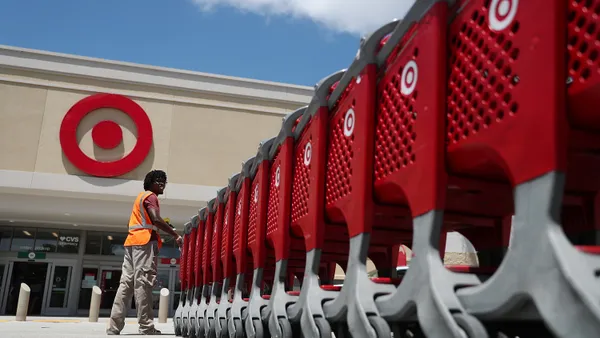Dive Brief:
- Humans — not machines — are central to the future of work, a report from the Workhuman found. In its 2019 International Employee Survey, Workhuman asserted that despite the pervasive fear of artificial intelligence (AI) and robotics replacing humans on the job, companies have greater opportunities to "leverage the previously untapped creativity and innovation of people — to prioritize humanity and emotional intelligence at work." The report is based on responses from more than 3,500 workers in the U.S., Canada, U.K. and Ireland.
- The report also touched on flight risks by industry. More workers in information technology, biotech, consumer goods and services, technology and telecommunications said they are looking for a new job than workers in other industries. Five industries with the lowest percentages of job-seeking workers were hospitality, construction, government, transportation and legal, Workhuman said.
- Diversity and inclusion findings revealed that more than a quarter of respondents have experienced discrimination at some point in their career — most often based on age (52%), gender identity (30%) and race (29%). The report found more than 50% of female respondents in middle and frontline management said another manager has taken credit for their ideas; one-third said they experienced some form of discrimination; and more women said they lack a good work-life balance than did male respondents.
Dive Insight:
For humans to thrive, said Workhuman, companies need to adopt programs and "human applications" that foster trust, respect, gratitude, autonomy, appreciation and equity. A 2018 report from Mercer also reminded employers that the "human operating system" is central to the future of work. The Mercer report concluded that employers must make meaningful work integral to employee value proposition, rethink how work is done and who will do it, encourage human creativity and ambition by matching skills with demand, and use tech to enhance the employee experience.
The Workhuman report also concluded that respondents want more appreciation in their work cultures and from managers, and noted that more recognition often leads to a heightened feelings of belonging. Experts have noted that central to the employee experience is that sense of belonging, a feeling of being safe and included. Seth Mattison, co-founder and chief movement officer at Luminate, told participants in the 2019 Disability Management Employer Coalition Annual Conference in August that hierarchies and networks are often two conflicting forces in the workplace, but that both are needed to make employees feel safe with a clear sense of belonging. Mattison said hierarchy provides employees with stability, clarity and predictability and networks give them freedom to access information, contribute to a goal and build community in the workplace.












![Salesforce AI's CEO sits onstage across from Cristina Criddle. Screens that say Human[X] hang behind them.](https://imgproxy.divecdn.com/4XVfO8mNsslv7_axsVip9IU74iKpLWgiY3616VXH4ow/g:nowe:0:104/c:1024:578/rs:fill:600:338:1/Z3M6Ly9kaXZlc2l0ZS1zdG9yYWdlL2RpdmVpbWFnZS9HZXR0eUltYWdlcy0yMjA0NjUxNDM0LmpwZw==.webp)